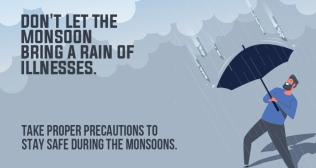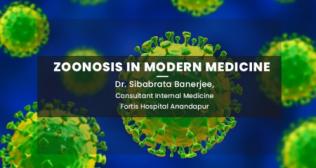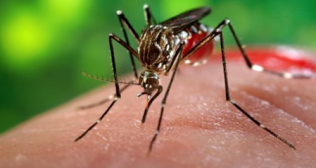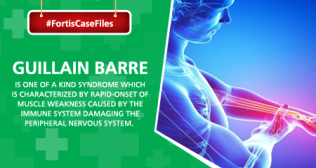
Best Dengue Fever Treatment in Mumbai
Dengue fever: Who is at risk? Symptoms, causes, treatment and prevention
The risk of viral infections, particularly dengue fever, increases during the monsoon or rainy season. Dengue fever, also known as breakbone fever, is a potentially life-threatening illness transmitted through the bite of infected Aedes mosquitoes, found in tropical, subtropical, and some temperate regions. Dengue is now spreading to new areas, primarily due to climate change. Dengue fever has emerged as a major global health threat, with millions of cases reported worldwide each year.
With no specific medicine available to treat dengue fever, avoiding mosquito bites is the best way to prevent the viral disease. Treatment for dengue fever at Fortis Hospital, Mulund, focuses on managing symptoms and preventing complications from the illness. This article explains all you need to know about dengue fever – symptoms, causes, risk factors, treatment, complications and prevention.
What is dengue fever?
Dengue fever is a viral disease that spreads to people through the bite of mosquitoes carrying one of four dengue viruses. The Aedes aegypti mosquito is the primary transmitter of dengue fever and is known to bite during both day and night. Dengue fever does not always cause symptoms, if it does, the infection usually begins with flu-like symptoms, which can range from mild to severe. Early recognition and treatment can help prevent complications such as dengue haemorrhagic fever and dengue shock syndrome.
What are the signs and symptoms of dengue fever?
Most dengue fever cases are asymptomatic, meaning people do not experience symptoms. Symptoms, when they do occur, may show up 4-10 days after being bitten by an infected mosquito, usually lasting for 3-7 days. Dengue fever can cause high fever along with other symptoms such as:
- Severe headache
- Pain behind the eyes
- Muscle and joint pain
- Fatigue
- Rash
- Nausea
- Vomiting
- Swollen glands
While most people recover within a week or so, some cases may worsen and progress to severe dengue, also known as dengue haemorrhagic fever, and dengue shock syndrome. Symptoms may include:
- Severe abdominal pain
- Persistent vomiting
- Blood in the poop or vomit
- Bleeding from the nose or gums
- Rapid or difficult breathing
- Restlessness or extreme tiredness
Severe dengue is a medical emergency that can cause internal bleeding, organ damage, and blood pressure to drop to dangerous levels, leading to death in some cases. Seek immediate medical help if you or anyone in your household experiences any of these symptoms.
What causes dengue fever and how does it spread?
Dengue fever is caused by any one of the four strains of dengue virus (DENV). These viruses are spread by the bite of infected Aedes aegypti mosquitoes, and to a lesser extent, the Aedes albopictus mosquitoes. These mosquitoes become infected when they bite someone with dengue fever. Then, when a mosquito infected with the dengue virus bites you, the virus enters your bloodstream and causes infection. This is how infected mosquitoes spread the dengue virus in humans through their bites. Dengue fever cannot be transmitted directly from one person to another, except when it’s passed from a pregnant woman to her baby during pregnancy or childbirth.
Who is at risk for dengue fever or a more severe form of infection?
Your risk of getting dengue fever or severe complications from the infection is higher if:
- You live in a region where dengue infection is common
- You have had an infection with a dengue fever virus in the past
- You are very young or an older adult
- You are pregnant
- You have a weakened immune system
- You have certain medical conditions like asthma, diabetes, high blood pressure, etc.
How is dengue fever diagnosed?
Your doctor will review your symptoms and medical history. They will also ask if you’ve recently travelled to an area where dengue fever is found. Your doctor may order blood tests to confirm the diagnosis or look for evidence of infection with other viruses that cause similar symptoms.
How is dengue fever treated?
Unfortunately, there is no specific medicine or antiviral drug to treat dengue fever, although advanced research is underway. Therefore, treatment focuses on managing symptoms, which may include:
- Taking pain relievers to ease any pain and bring down the temperature
- Drinking plenty of water and fluids to stay hydrated
- Getting rest as much as possible
In severe cases, patients may need:
- Supportive care in a hospital
- Intravenous (IV) fluid supplementation
- Blood transfusion or, in some cases, platelet transfusion
- Blood pressure monitoring
Is there a vaccine against dengue fever?
Currently, two vaccines are available for kids living in regions with high intensity of dengue transmission (neither of which is available in India). Reports suggest that the QDENGA dengue vaccine, which has been approved for use in many countries, will be launched in India in 2026. Developed by Takeda, the vaccine is recommended for children aged 6-16 years in regions with high dengue transmission intensity.
How can dengue fever be prevented?
The best way to prevent or reduce your risk of getting dengue fever is to protect yourself from mosquito bites. The World Health Organisation (WHO) stressed that the vaccine does not offer protection against all dengue viruses, indicating that comprehensive vector control is the most effective method for preventing or spreading dengue virus infection.
Preventive measures may include:
- Using DEET-based insect repellents on the exposed parts of the body
- Using mosquito nets, particularly if sleeping outdoors
- Wearing protective clothing such as loose, long-sleeved shirts and trousers, socks and shoes, etc.
- Staying in well-screened or air-conditioned areas
- Removing any stagnant water around the home to prevent mosquito breeding
- Emptying and cleaning containers that hold standing water such as flowerpot saucers and vases.
- Limiting outdoor activity when mosquitoes are most active – at dawn and dusk
- Not travelling to regions where dengue is common, especially if you’re pregnant
When should I see a doctor?
You should consult a doctor if you notice any symptoms of dengue, especially if you live in or have recently visited a region with a high incidence of the mosquito-borne viral infection.
Conclusion
Most people infected with the dengue virus have no symptoms or mild illness and recover in a few days. However, some cases can worsen and lead to severe dengue that requires immediate medical care in a hospital setting. Early detection and treatment can help prevent or reduce the risk of complications and death. Taking preventive measures such as controlling or eliminating mosquito breeding grounds and avoiding bites from infected mosquitoes, remains the most critical step in combating den
Categories
Clear allMeet the doctor

- Internal Medicine | General Physician
-
20 Years
-
1500


















